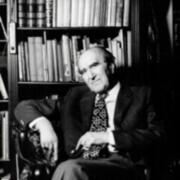Miklós Szentkuthy (1908–1988)
Author of Marginalia on Casanova
About the Author
Series
Works by Miklós Szentkuthy
Tagged
Common Knowledge
- Canonical name
- Szentkuthy, Miklós
- Legal name
- Pfisterer, Miklós
- Birthdate
- 1908-06-02
- Date of death
- 1988-07-18
- Gender
- male
- Nationality
- Hungary
- Birthplace
- Budapest, Ungarn
- Place of death
- Budapest, Ungarn
- Occupations
- Writer
Translator - Awards and honors
- Baumgarten Prize (1948)
Award of Excellence of the Publisher Europa (March 21, 1975 – for the translation of Ulysses)
Attila József Prize (1977)
Order of Labor Gold Degree (1978)
Füst Milán Prize (1982)
Déry Tibor Prize (1984) (show all 9)
Award of Excellence from the Publisher Magvető (May 15, 1985)
Kossuth Prize (April 4, 1988)
Award of Excellence from Hungarian Radio (June 28, 1988)
Members
Reviews
Awards
You May Also Like
Associated Authors
Statistics
- Works
- 31
- Members
- 295
- Popularity
- #79,435
- Rating
- 3.6
- Reviews
- 4
- ISBNs
- 44
- Languages
- 4
- Favorited
- 3
















The book really is a commentary on Casanova; Szentkuthy retells anecdotes from the Memoirs, often very stylishly, and then spins out of them his own philosophico-romantico-historical thoughts, which are sometimes dazzling, sometimes tedious, but usually worthwhile. Throughout the first half, I was thrilled--the discussions of the eighteenth century were glorious. Szentkuthy is willing to make massive over-generalizations in search of some truth, and I'm glad for it. I lost interest in the second half, because it was less about the eighteenth century, and more about the philosophy love (not my favorite topic of literary discussion); a couple of the digressions (that on Abelard was okay; that on Tintoretto tedious; that on Marvell even more so) were far less enlightening than they could have been. But the project is a worthwhile one, and I wish more of it had been translated.
And herein lies the rub: translated, but not in this manner. We owe Tim Wilkinson some gratitude for bothering to take on a text like this, in a language (let's be honest) almost none of us will ever know, for, I'm guessing, precisely no monetary return or professional esteem. But someone, lets call him or her the editor, needs to take a stand when s/he sees sentences like this:
"This was a theatrical danger signal when Casanova watches these moon trout in the Cypriot evening as if for a moment he would transform into Lucifer who with black Schadenfreude signals the amorous decadence of coming centuries, starting with the excessive sight of women, a pretty picture."
I have no doubt that translating from Magyar is very difficult, but editing English sentences should not be. And given that Szentkuthy translated, e.g., Ulysses, and is considered a giant of Hungarian literature, I doubt he would write anything so barbaric as that (just one among many examples). Hopefully future volumes of his work will show him enough respect to make him sound more competent; or, alternatively, include a brief note from the translator explaining why Szentkuthy sounds like a freshman deranged for a moment on ADD drugs with black Schadenfreude signals.
The St Orpheus Breviary project is a wonderful attempt to produce a modern/post-modern version of self-critical humanism; this volume probably wasn't the best one for me to start with; and it needs to be re-edited, at least. My rating should be understood accordingly.… (more)